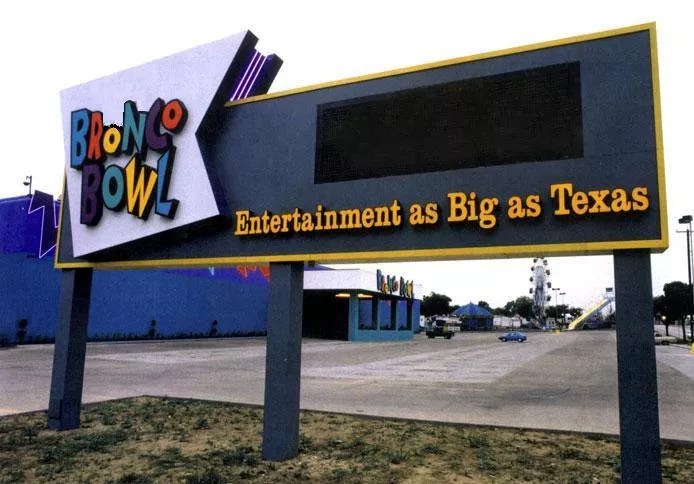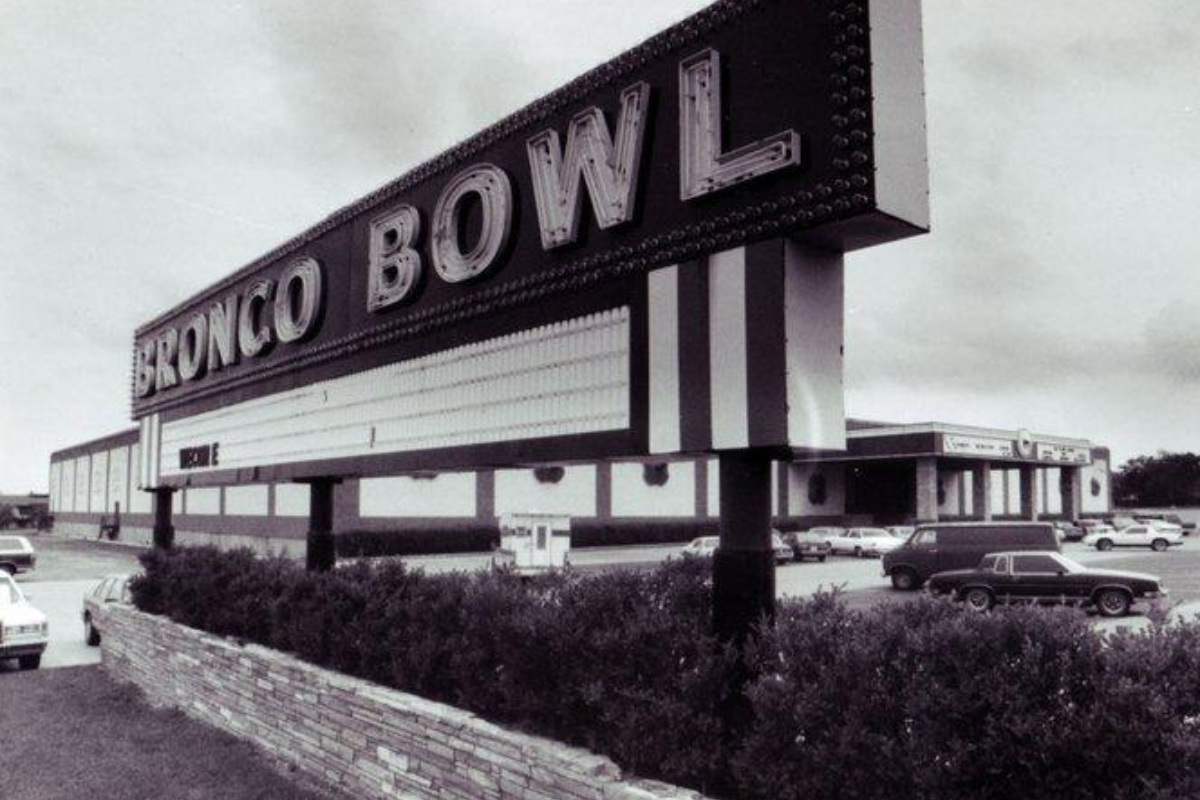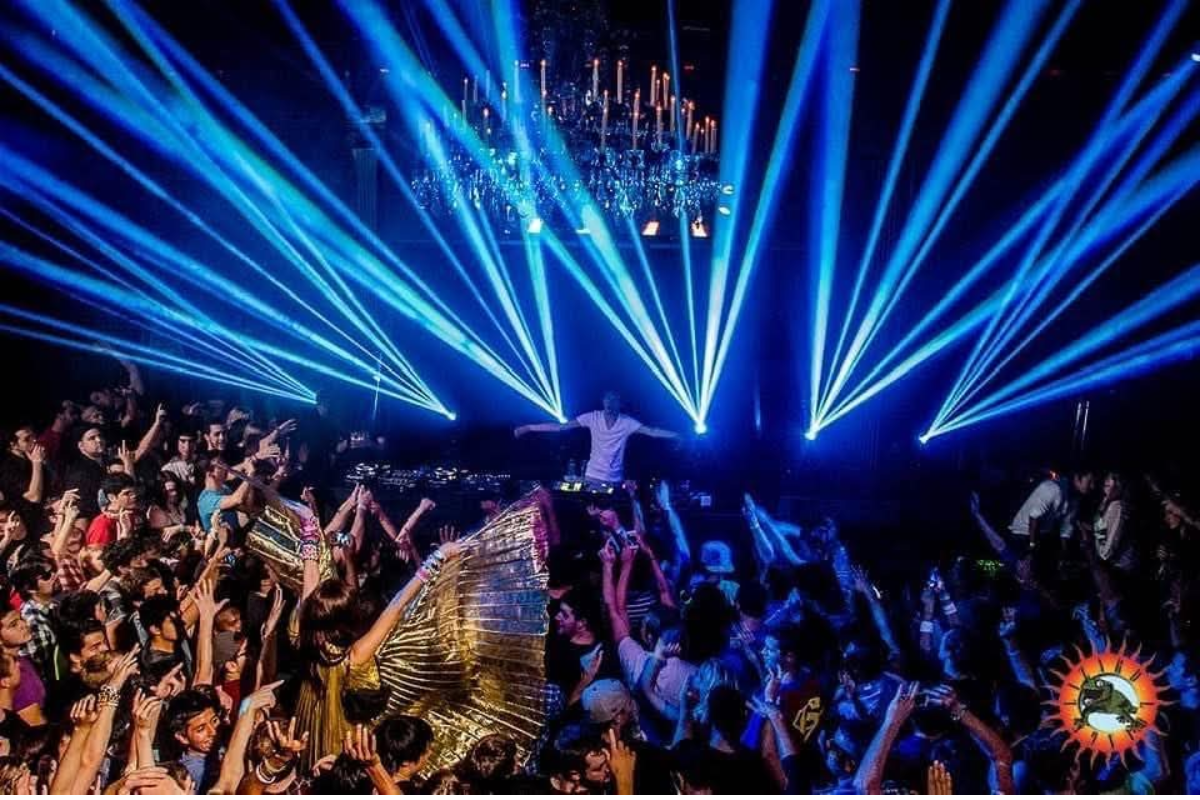
Courtesy of Clifford A. Booth

Audio By Carbonatix
Like the floor of the pit after a chaotic crowd has left, Dallas’ history is littered with unforgettable music stories.
A bouncer and Kurt Cobain coming to blows at Trees. Dennis Rodman and Madonna are pulling up to the Lizard Lounge and offering to buy the place. The ungodly amounts of then-legal MDMA at the Starck Club, and Sid Vicious and the Sex Pistols playing The Longhorn Ballroom while blood cascaded from Vicious’ nose.
Unfortunately, some of the sites of these stories have since shuttered.
We miss the music and the drama. We miss being able to say, “Yes, I was definitely there; you just didn’t see me.”
Most of all, we miss calling these venues part of our city.
After putting together the 10 best music venues, we’re back with another list of the top bygone venues. There are plenty of other spots worthy of a shoutout, like BrainDead Brewing, where Marc Rebillet first cut his teeth. But these are the biggest fan favorites that still get talked about. Here are seven bygone venues we’d wish were still here.

The exterior of Bronco Bowl.
Courtesy of Clifford A. Booth
Bronco Bowl
2600 Fort Worth Ave
This aptly-named establishment boasted thousands of seats and a bowling alley, much to the chagrin of Bruce Springsteen and Neil Young. Rumor has it that The Boss almost canceled a Bronco Bowl gig when he learned he’d be performing at a bowling alley. He ultimately went through with it. On a different day, Neil Young decided he couldn’t stomach sharing the building with bowls and pins. Plenty of others didn’t mind, though. In roughly 30 years of operation, this Oak Cliff venue hosted The Clash, The Smiths, the Red Hot Chili Peppers, U2, Public Enemy and many more. In fairness to Springsteen, after his performance, he apparently joked that he was only going to play bowling alleys from then on. Maybe that was just the way the Bronco Bowl made people feel.
Dallas City Limits
10530 Spangler Rd.
This gritty, sweat-soaked venue on Spangler Road was a mecca for rock and metal fans in the late 1980s and early 1990s. Pantera, Anthrax and Alice in Chains were just some of the acts that tore up this stage and turned the City Limits mosh pit into a rite of passage for true metal heads. Today, the consensus seems to be that grunge music stole the spotlight from metal, contributing to the venue’s demise. Now, the venue has little footprint online beyond whispers of legendary, ear-damaging shows.

The inside of Lizard Lounge.
William Lamoreaux Photography
Lizard Lounge
2424 Swiss Ave
For roughly three decades, Lizard Lounge was a second home for goth girls, electronic aficionados and other misfits. Sunday nights at “The Church” – a globally adored goth bash – provided some of the best parties you could find in Texas or anywhere else, and on other nights of the week, artists like Moby, Paul Oakenfold and Fatboy Slim gave people plenty of reasons to show up. One of the key reasons for the lounge’s success was owner Don Nedler, who rightfully predicted that DJs would become rock stars in the 21st century.
Curtain Club
2800 Main St.
You don’t get to be the longest, continuously-running club in any neighborhood, let alone Deep Ellum, without offering a singular experience. Curtain Club’s wall-painted schedule became one of the area’s calling cards, and for local bands, playing the venue became the kind of goal you’d spend endless hours trying to earn. This is where bands like Tripping Daisy and Drowning Pool got their start, and on a blistering June day in 2019, the venue’s final show spilled into the night. Multiple generations of Curtain Club guests performed for a raucous parking lot crowd, creating the kind of night you only get once in a lifetime (if you’re lucky).
Arcadia Theater
2005 Greenville Ave
This cinema-turned-house of rock hosted The Ramones, Nine Inch Nails, Jane’s Addiction and other ear-splitting, mosh-churning acts whose wild shows conflicted with the plush interior. When you walked into the Arcadia Theater, it felt like you were going to the movies in the mid-20th century (even the sticky floors seemed on-brand). But when the house lights turned off and the stage lights came on, all bets were off. Fans would jump from the balconies, leap into sweat-soaked pits and generally lose their rock-loving minds. That insanity was its enduring charm. As Robert Wilonsky noted in this publication, when a fire claimed this venue in 2006: “Anyone who’s lived in Dallas for even a decade has fond memories” of the Arcadia Theater.
Galaxy Club
2820 Main St.
Maybe the infamous roadkill piñata story says it all. During a show by the band Brutal Juice, literal brutal juice started leaking, then flying (alongside animal bits) from a black trash bag full of roadkill that someone had brought to the concert. But don’t let the bag of dead animals distract you too much. Galaxy Club is also the place that brought us hectic, hell-raising shows by the likes of Fugazi, Pavement, Jawbreaker and System of a Down. If you didn’t leave Galaxy Club without a story about a stage dive or impromptu brawl, did you really go there?

The exterior of Club Clearview.
Jeff Swaney
Club Clearview
2803 Main St.
Complete with seven themed rooms and stretching 10,000 square feet, Club Clearview was a Deep Ellum cathedral that quite literally had something to offer everyone. Indie rockers and drag queens showed up, as did Edie Brickell & the New Bohemians and the band formerly known as the Dixie Chicks. Celebrities popped in, too – it wasn’t strange to see Oliver Stone, Thomas Haden Church, or the guys from Pink Floyd rubbing elbows. This club has one of the best origin stories, too: It all began when a guy named Mark Cuban started throwing warehouse parties with his buddies. There’s simply no other place like this anymore, though at least Cuban also helped bring us the modern Mavericks. They’ll never disappoint, right?